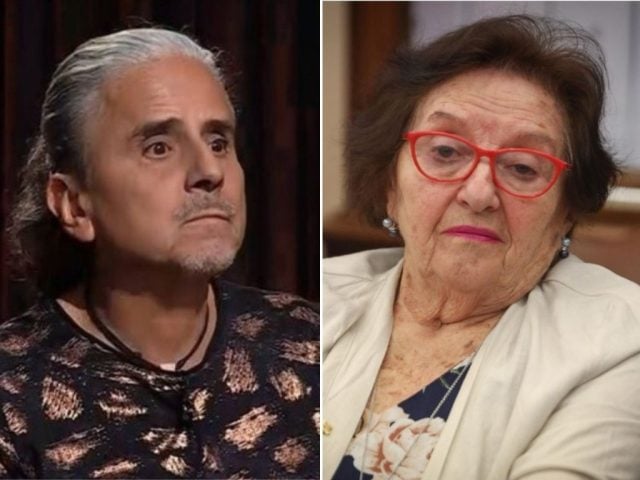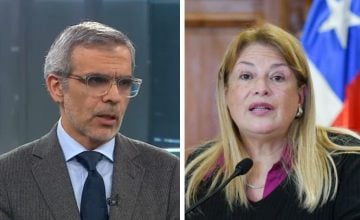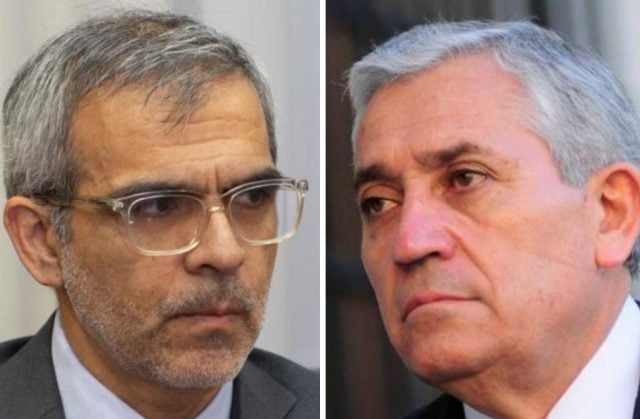Original article: Castigo en las urnas: diputada Cordero pierde la reelección y Pablo Herrera fracasa en su intento de llegar al Parlamento
The election results spoke decisively. In a contest where several prominent figures tested their public support, Maria Luisa Cordero (IND–RN) lost her bid for reelection in District 10, while singer-songwriter Pablo Herrera (IND–RN) failed in his first attempt to enter the Chamber of Deputies for District 14. Both candidates were excluded from Parliament, garnering less than 3% of the votes.
According to the official tally, Maria Luisa Cordero lost her reelection with 14,530 votes, representing only 2.24% in a district that comprises politically active communes such as Santiago, Ñuñoa, and Providencia. Meanwhile, Pablo Herrera received 15,427 votes, amounting to 2.65% in District 14, which includes popular areas in the southern region of the Metropolitan Region like San Bernardo, Buin, and Melipilla.
Beyond the numbers, the defeat of both figures sends a political message in their districts: the efforts by Renovación Nacional and segments of the right to elevate controversial personalities with a history of scandal were insufficient to sway an increasingly critical electorate wary of disrespectful rhetoric.
Maria Luisa Cordero Loses Reelection After Years of Controversies
The fact that Maria Luisa Cordero lost her reelection comes as no surprise to those who closely followed her congressional tenure. Her time in office was marred by a long series of offensive statements and legal issues that damaged not just her personal image, but also the reputation of her party.
In 2023, both the Court of Appeals of Santiago and the Supreme Court upheld her removal from office related to a lawsuit for defamation filed by Senator Fabiola Campillai. During her media appearances, Cordero cast doubt on the total blindness of the senator, who was a victim of eye trauma caused by Carabineros during the 2019 protests, which the Supreme Court deemed a serious enough matter to allow for her prosecution.
Rather than tempering her tone, the congresswoman attracted further controversy in 2025, this time with comments directed at the Bolivian people. Her comments regarding an alleged “decrease in brain oxygen” among Bolivians were denounced as “xenophobic” and “unacceptable” by the Chilean Foreign Ministry, leading to an official protest from the government of former President Luis Arce and denunciations from Bolivian and Chilean organizations.
This wasn’t Cordero’s first time targeting migrants or specific groups; in various interviews, she linked foreigners to “criminals” and employed classist and racist stereotypes when discussing lower-income sectors, which sparked broad condemnation and led many to view her rhetoric as not only “unfiltered,” but openly discriminatory.
In this context, her poor showing of 2.24% can be seen as more than just a personal loss. It signals that a significant portion of the electorate in District 10 is unwilling to endorse a parliamentarian whose name is more closely associated with scandals and lawsuits rather than legislative work.
Pablo Herrera: From Romantic Ballads to Electoral Rejection
Pablo Herrera’s situation is different yet reflects a similar trend. Famous for his romantic ballads in the 1990s, the musician reemerged in public discourse not for his music, but for his extreme comments on migration and crime.
In 2024, Herrera sparked significant controversy during a radio interview by calling for “bullets to be fired at foreign criminals.” He also remarked that some migrants “bring their awful culture” and infamously stated, “I hope they all get shot,” referring to migrants associated with crime. Various human rights organizations labeled his remarks as racist, and the Haitian community filed legal actions against him.
Despite this troubling history, Renovación Nacional chose to present him as an independent candidate in District 14, attempting to promote him as a media figure within the Chile Grande y Unido coalition. However, there was discomfort within RN’s ranks, as several leaders warned that Herrera was a “controversial” figure lacking grassroots support at a time when the party was trying to cultivate its own leadership.
Nevertheless, the campaign failed to capitalize on his past fame or media exposure. The 2.65% he received places him at the bottom of the candidate list, far from the seats ultimately allocated in the district. His media appeal did not translate into votes, leaving the right without one of the figures they had attempted to portray as a tough face on migration.
Fame Is Not Enough
The dual setback for Cordero and Herrera conveys an uncomfortable lesson for traditional right-wing politics: casting media figures with a history of xenophobic, classist, or openly offensive remarks may attract attention on television panels, but it does not necessarily persuade voters in complex, politically engaged regions.
In Cordero’s case, her congressional career was overshadowed by judicial rulings, her removal from office, and public condemnation from the government, which criticized her for denialist practices regarding human rights violations, such as in the case of Fabiola Campillai.
In Herrera’s situation, the attempt to leverage public outrage over crime resulted in a discourse that crossed the line into open hatred against migrants in a country where discussions about security are already tense enough without implicit calls for state or para-state violence.
The electoral day made it clear that, at least in these two districts, voters held both candidates accountable. Neither their media presence nor their ongoing scandals sufficed to maintain—or build—real political capital. The percentages indicate that Maria Luisa Cordero lost her reelection and Pablo Herrera is left out primarily due to their own burdens rather than any lack of visibility.









